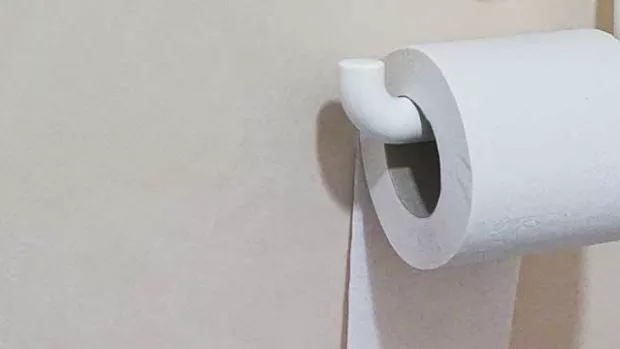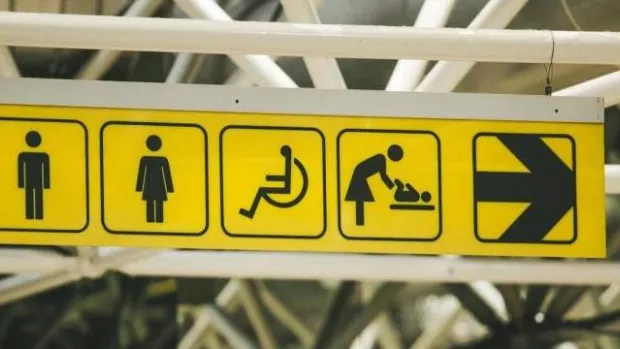
Managing constipation
People can mean different things when they talk about constipation.
It can mean any of the following:
- pooing less than three times a week
- small, hard lumps of poo (when poo won’t move along your bowels, it’s called ‘impaction')
- straining or spending a long time trying to poo but nothing happens
- bloating or feeling sick, or it hurts to poo
- abdominal pain
- sense of incomplete emptying
- excessive wind
- watery diarrhoea-like fluid (this leaks from behind hard, impacted poo)
- not feeling hungry (and you're losing weight)
While most people will not have all of these, a combination is possible.
Constipation is more common in MS than bowel incontinence. The two can be linked, but people who have constipation will not necessarily go on to develop a problem with incontinence, or vice versa.
It's not always easy to approach the subject of bowel problems or constipation with your doctor or nurse. But professional help can make a real difference when trying to manage these issues. A GP, MS nurse, neurologist or a continence adviser can help.
Tips for treating constipation
Good fluid intake
The generally recommended fluid intake is around 6 to 8 cups or glasses a day (more if the weather’s hot or you’re exercising). A good fluid intake can help treat and prevent constipation. Apart from your first pee of the day (which is often darker), wee should be pale yellow. Darker wee means ‘drink more’.
If you have MS-related bladder problems, you may have limited your fluid intake. In this case, you will need to treat these as well.
You may be tempted to drink less if you have a bladder problem, or your MS makes getting to the toilet difficult. However, this can make constipation worse. Talk to your MS nurse, GP or continence nurse about how to manage this.
A balanced diet
Eating a balanced diet, which includes at least five portions of fruit and vegetables every day and plenty of fibre, can help you to achieve regular bowel movements. These foods may help relieve mild constipation:
- whole-grain cereals (including porridge, bran flakes or muesli)
- fruit (including dried fruit)
- vegetables (lentils, peas and beans – including baked beans – are especially high in fibre)
- nuts (including linseeds - also called flaxseeds)
Increase your fibre by switching from white bread, regular pasta and white rice, to wholemeal bread, whole-wheat pasta and brown rice.
When you add more fibre to your diet, go slowly. Too much too soon will cause bloating and wind. Fibre soaks up water in your bowel, so you’ll need to drink more, otherwise your poo will be hard and your constipation won’t get better.
For some people more fibre can make constipation worse. If this happens to you, get advice from a doctor, dietician, MS nurse or continence service.
Activity and exercise
If MS symptoms such as fatigue or reduced mobility mean you’re less active than you used to be, this can add to problems with constipation.
Being active doesn’t have to mean going out and playing a sport – it’s about finding the right activity to suit you and your abilities.
Regular and comfortable routine
Try to schedule a regular time to go to the toilet.
Around 20 to 30 minutes after breakfast is often the best time. Or you might schedule a regular time after coffee or a hot meal.
A toilet also needs to be fitted out so you can feel comfortable and stable. As it’s most natural for humans to squat to pass a stool, you may find it helps to have something to rest your feet on, so your knees are above hip level.
When going to the loo, try to relax and breathe normally. If you hold your breath and strain, you’ll tense up your anus – whereas you should be aiming to relax your anus to allow the stools to pass. Take your time (and have privacy), but try not to spend endless time in the toilet straining. If your bowels do not open, try again at the same time next day.
Medication review
Some types of drugs commonly taken in MS are can cause constipation, including:
- drugs used to treat over-active bladder in MS such as oxybutynin (brand name Ditropan) or tolterodine (Detrusitol, Detrol)
- anti-spasticity drugs, like baclofen, used to treat muscle stiffness and spasms
- anti-depressants (amitriptyline, fluoxetine – including Prozac – and citalopram)
- some painkillers like pregabalin and gabapentin. Also any with codeine in them (including Co-codamol, Nurofen Plus and Solpadeine Max or Plus) or any with morphine in them like Oramorph
Other treatments
Treatments for constipation include laxatives that can be taken as tablets, capsules, a powder you add water to, or in a suppository (a capsule that you put up your back passage). Stool softeners can be used as a gel that you put inside your bottom using a micro or mini-enema.
Abdominal massage helps some people poo by stimulating the bowel to squeeze poo faster through it. You might use this as well as using laxatives or anal irrigation. A trained person needs to show you how to do this massage safely.
You can use a finger (digital stimulation) or hand (manual evacuation) to help you to poo. A specially trained nurse needs to teach you manual evacuation.
If these don’t work, then trans anal irrigation (also called rectal irrigation) might help. You use a pump system to wash your bottom out with water to make you poo – usually every other day. You need a prescription to get the pump system, and a doctor or nurse must teach you have to use it.
Other treatments include biofeedback (training your bowel) and electrical stimulation of nerves in your abdomen (belly). You’ll find more about all these treatments in our booklet ‘MS and your bowels’ or by speaking to your local continence service or MS nurse.




